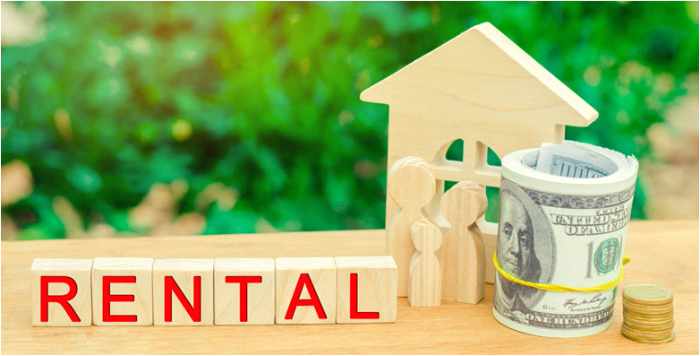According to the National Association of Realtors, the average person moves 11.7 times in their lifetime. And, while many people dream of owning their own home, an estimated 36% of Americans will end up renting at some point. This means that there is a massive opportunity for rental property owners to make a profit. But first, make sure to avoid these rental property buying mistakes.

7 Rental Property Buying Mistakes
However, rental property ownership is not without its challenges. One of the most challenging parts is the buying process. If you’re not converting your own home into a rental property, be aware that many investors often make mistakes that can cost them dearly.
Here are seven rental property buying mistakes and how to avoid them.
1. Not Researching the Neighborhood
When looking for a rental property, it’s essential to do your homework on the neighborhood. You’ll want to research things like the crime rate, schools in the area, and the average rental prices. This will help you decide if the neighborhood is a good fit for your rental property business.
It will also help you determine what type of rental property would be most successful in that area. For example, if you’re looking at a neighborhood with many families, then a single-family home may be your best option.
If you don’t research the neighborhood, you could end up with a property in an area that is not desirable to renters. This could lead to vacancies and a loss of rental income. Check out these properties if you’re looking for the best investment properties in a good neighborhood.
2. Failing to Get a Home Inspection
A home inspection helps you understand the condition of a rental property before you buy it. This report can alert you to any potentially expensive repairs that need to be made. It can also help you negotiate with the seller on the final purchase price.
If you don’t get an inspection, you may purchase a rental property that needs significant repairs. These repairs could eat into your profits or even put you in the red.
To avoid this mistake, be sure to get a home inspection before buying any investment property. This will give you a clear understanding of what you’re getting into and help you make an informed decision.
3. Purchasing Too Many Rental Properties
We have all heard that portfolio diversification is important, but rental properties are a huge investment. Unfortunately, many landlords often purchase too many rental properties in an attempt to make a huge amount of money quickly.
This is a major mistake that could lead to a lot of problems. An over-diversified portfolio can actually lead to more risk, not less.
It is important to remember that each rental property is an individual business contributing to your passive income. When you purchase too many rental properties, you may find yourself in over your head and unable to give each property the attention it needs to be successful.
So, how many rental properties should you own? The answer may depend on a number of factors, but there are a few general guidelines. If you’re a first-time landlord, start with one or two rental properties.
On the other hand, if you’re an experienced landlord, you may be able to handle more rental properties. However, ensure you consider the amount of debt you can comfortably carry.
4. Not Consulting with a Real Estate Attorney
Hiring an experienced real estate attorney is one of the best ways to avoid rental property buying mistakes. A good rental property lawyer will thoroughly review your rental agreement and help you negotiate the best possible terms.
Additionally, an attorney can offer advice on how to structure your rental business in order to minimize your liability and maximize your profits. They can also help you navigate the often-complex world of rental property law.
5. Not Comparing Property Costs
Investing in real estate is a big decision that shouldn’t be taken lightly. There are a lot of rental property options out there, and it can be tempting to jump on the first one you see. However, it’s essential to compare costs before making a decision.
The cost of rental property includes more than just the monthly rent price. You also need to factor in utilities, monthly maintenance fees, and any other additional costs. Be sure to compare all of these factors before making a decision on which rental property to choose.
6. Working With the Wrong Property Managers
One of the most important aspects of rental property ownership is finding and working with a great property manager. The right property manager will be worth their weight in gold, taking care of all the day-to-day details, so you don’t have to.
They’ll also be able to help you find good tenants, handle maintenance issues, and keep your rental property running smoothly.
On the other hand, working with a bad property manager can be a nightmare. If you’re not careful, you could end up with a property manager who doesn’t do their job properly, constantly loses tenants, and always has to call you to deal with problems.
To avoid this, it’s essential to do your research and carefully vet any potential property managers before you decide to work with them.
Take the time to read reviews, talk to other rental property owners, and get a sense of what it would be like to work with them daily.
7. Underestimating the Property’s Ongoing Expenses
Rental property ownership comes with several ongoing expenses that can quickly eat into your profits if you’re not careful. In addition to the mortgage payment, you’ll also be responsible for rental home maintenance costs, insurance, taxes, and routine repairs.
Before you purchase a rental property, make sure you have a realistic understanding of all the costs you’ll be responsible for. This will help you determine whether or not the property is truly a good investment.
Avoid the Above Rental Property Buying Mistakes
Now that you know the rental property buying mistakes to avoid, you’re one step closer to being a smarter and more successful rental property investor. Ensure you do your due diligence at each stage of the rental property buying process, from researching neighborhoods to finding the best property managers.
Did you like this article? Check out other posts on our site for more informative tips.



